Celebrating a special occasion, like a birthday or anniversary, with family is something many of us look forward to. But it can be challenging to coordinate everyone’s schedules, especially when siblings have kids and their own family routines. Sometimes, plans can change when children are involved, but those adjustments might not feel quite right to everyone.
In one story, a woman’s birthday dinner plans shifted unexpectedly when her sisters suggested moving the celebration from the restaurant to one of their homes. The reasoning? A casual setting would make things easier for the kids, who’d have toys and fewer behavior expectations. However, the woman was left feeling disappointed and overlooked. Curious how she chose to handle her special day? Keep reading to find out!
It’s important for families to be considerate of each other’s wishes

Image credits: Kateryna Hliznitsova (not the actual photo)
A woman was upset when her family changed her birthday dinner plans, choosing a home celebration instead for their convenience
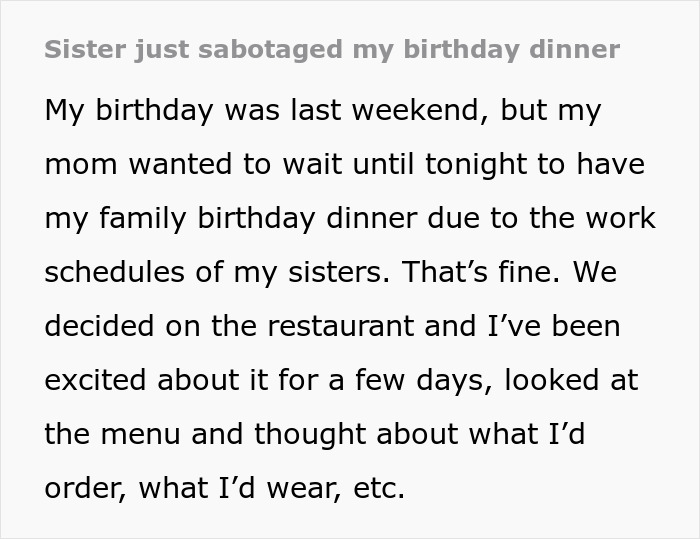

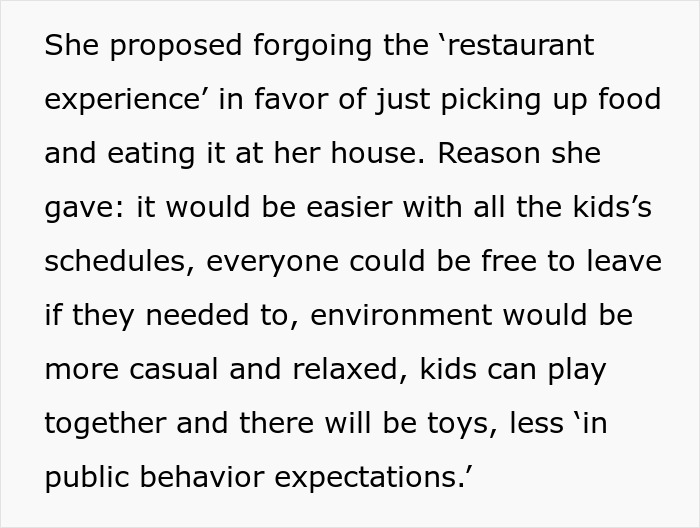


Image credits: Karolina Grabowska (not the actual photo)
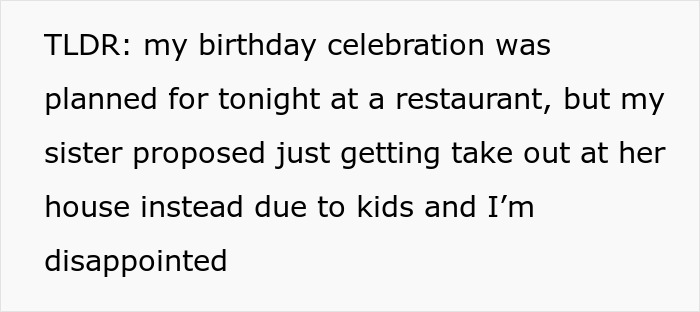
Image source: Soft-Caterpillar-618
If people take advantage of your generosity, you might be seen as a doormat

Image credits: Curated Lifestyle (not the actual photo)
When it comes to family, we often make small sacrifices without thinking twice. You might wait for a sibling who’s running late to dinner or step in to babysit for a sister who needs help. It’s all part of being kind and supportive, right? But here’s the catch: while being generous is great, it’s also important to set boundaries.
If you start noticing that your kindness is expected without any appreciation or reciprocity, it’s a red flag. That’s when people might be taking advantage of you. Recognizing this helps you avoid being treated like a doormat, ensuring that your relationships stay respectful and balanced.
Being a doormat often means letting others disregard your feelings, needs, or boundaries. If people constantly use you, take you for granted, or just expect you to go along with everything, it may be a sign you’re being treated like one.
One of the major signs of being a doormat is sacrificing your time, energy, or values to please others at your own expense. This behavior can leave you exhausted, bitter, and unfulfilled. If you frequently put your own needs aside to help others, you may start to feel depleted, especially if others don’t acknowledge your efforts.
People-pleasing tendencies can be a major part of being a doormat. This might mean taking on extra work to avoid disappointing others, saying yes to invitations you’d rather decline, or neglecting your own needs. If you’re always the one keeping the peace or bending over backward to ensure everyone else is happy, it’s time to reevaluate whether these efforts are mutual.
Constantly changing your mind to avoid conflict or please others can also be a sign. You may find yourself agreeing with others’ opinions even if you don’t believe them, just to fit in or keep the peace. Over time, this pattern can make you feel lost or disconnected from your values and beliefs. It’s important to remember that it’s okay to hold your ground and express your true feelings. Being honest, even when it’s uncomfortable, can help you feel more confident and respected.
Additionally, apologizing when you haven’t done anything wrong might seem polite or peacemaking, but it can send the message that you’re willing to shoulder the blame, even when it’s undeserved. It’s okay to let others share responsibility for resolving conflicts instead of always taking it on yourself.
Standing up for yourself and setting boundaries is key to maintaining healthy relationships

Image credits: Getty Images (not the actual photo)
Preventing others from walking all over you starts with learning to say “no” more often. Many people find it hard to say no out of guilt, fear of disappointing others, or a desire to be seen as helpful. But saying yes to everything can drain you. By picking and choosing what you can realistically do without sacrificing your well-being, you can set clear boundaries that protect your energy and time.
You need to release guilt when you can’t do it all. For instance, if you have a friend who constantly expects you to be there at a moment’s notice, it’s okay to let them know that you have other responsibilities. It’s not your job to be there for everyone, all the time. Let go of any guilt associated with not meeting others’ expectations, and remember that your well-being comes first.
Avoid overexplaining things to your loved ones. When you say no, you don’t need to give a lengthy justification. A simple “I can’t this time” or “I’m not able to” is enough. People who respect your boundaries won’t push for more, and those who do probably need to learn to respect your limits.
Setting boundaries is also very important. Boundaries aren’t just about saying no; they’re also about expressing what behaviors are acceptable. Establishing clear boundaries helps others understand where you stand and reduces the chances of feeling taken advantage of.
Be assertive and confident in your choices. Remember, if you don’t advocate for yourself, no one else will. In this particular case, the author chose to stand up for herself after reading the comments and realizing the importance of setting boundaries. Have you ever had to say “no” to your family? How did they react? Were they disappointed, and how did you manage the situation? Setting boundaries doesn’t mean you love them any less—it’s about ensuring that your needs are respected, too!
Many people praised the author for standing her ground and even called her family out for being selfish
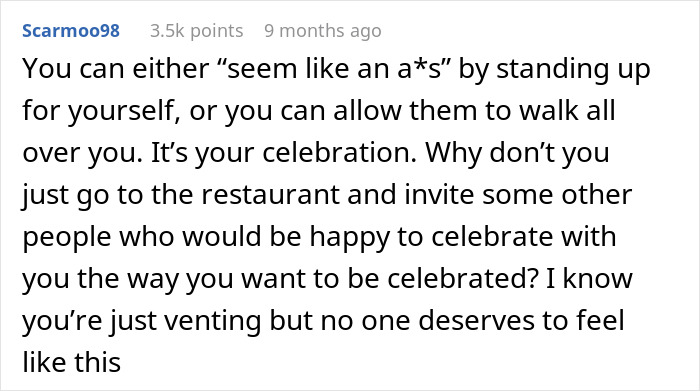


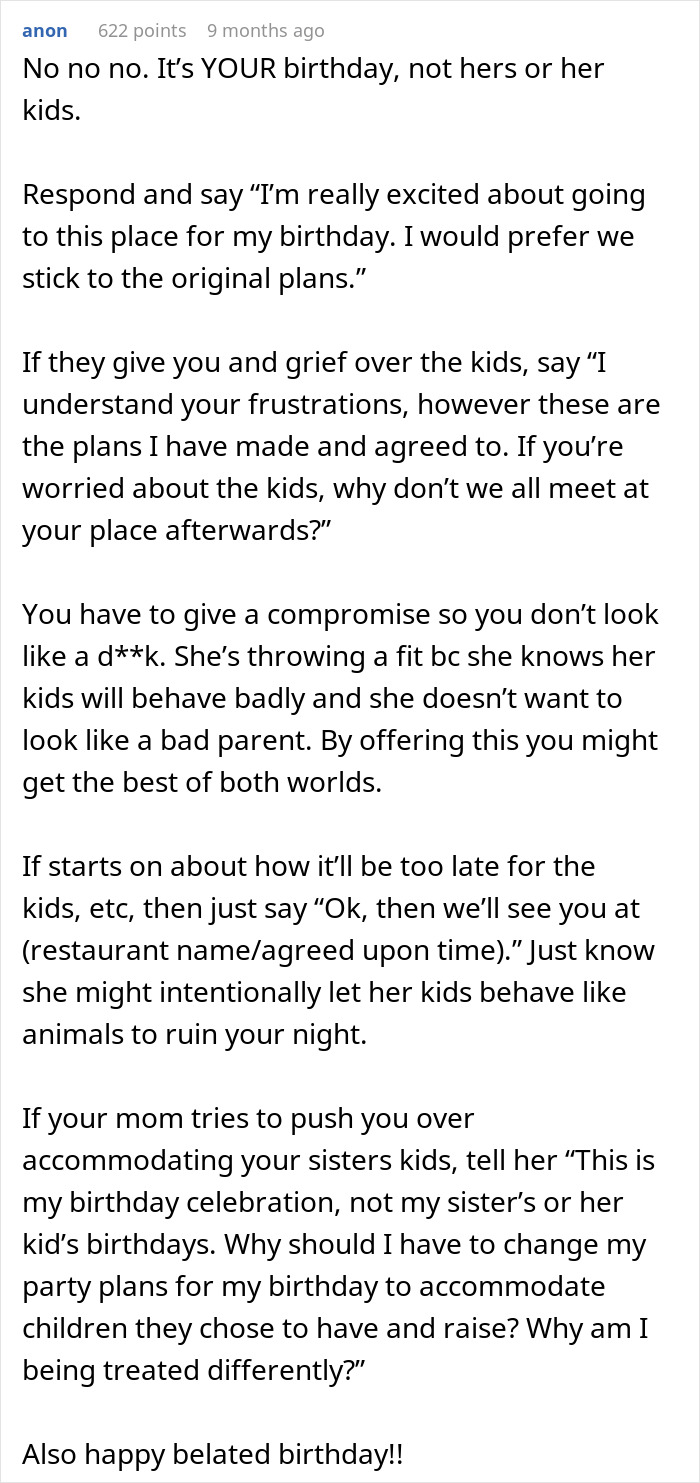

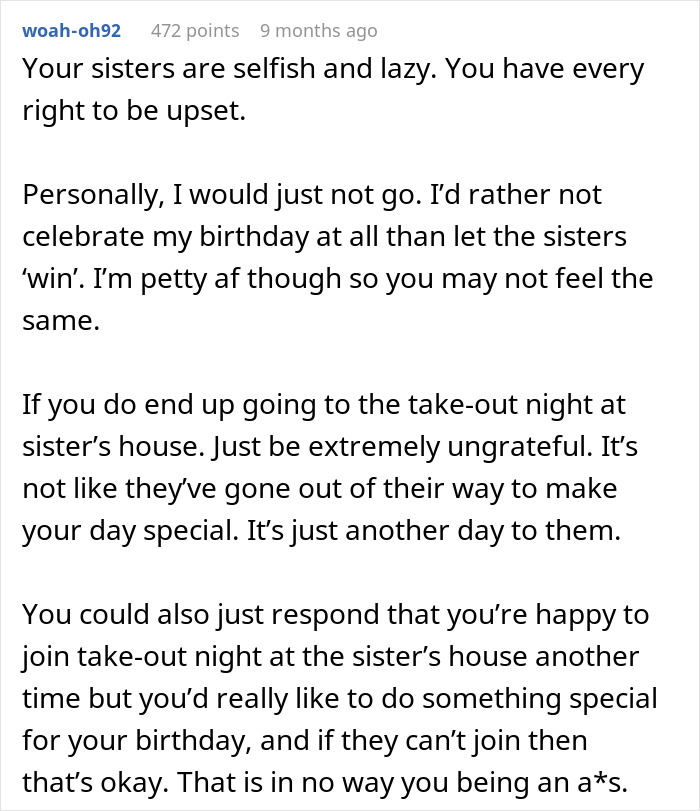


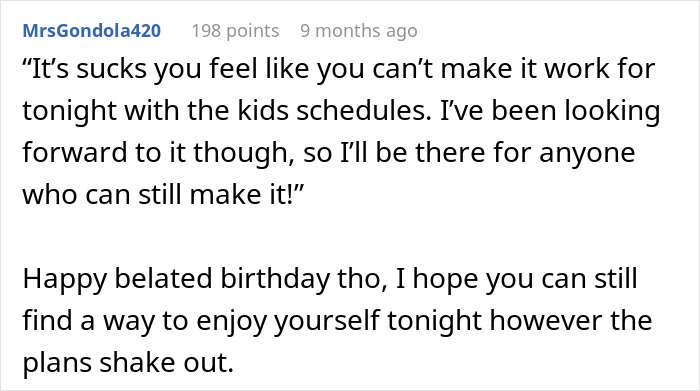



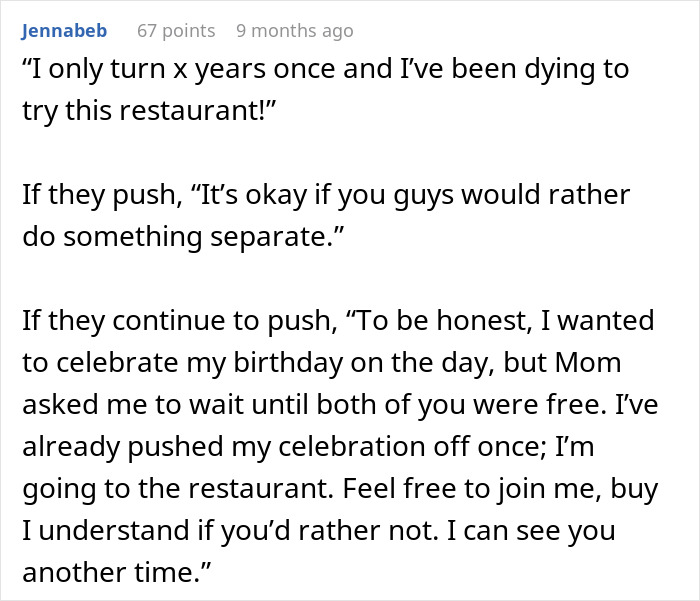
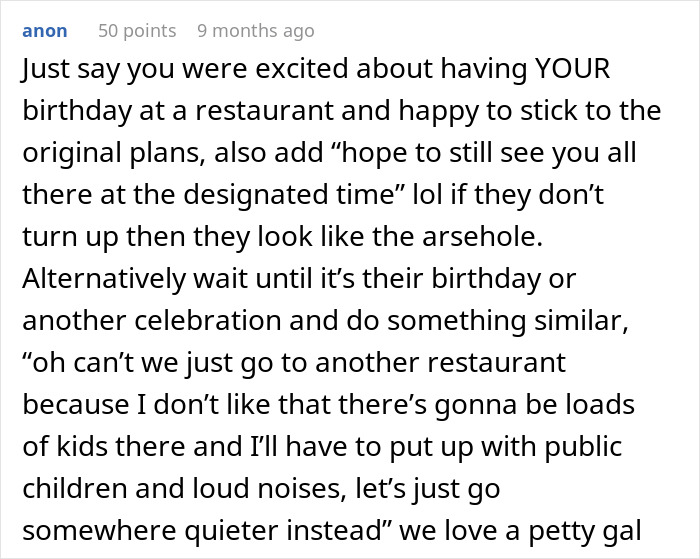
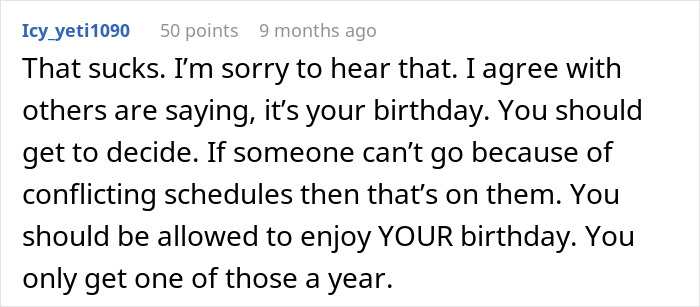
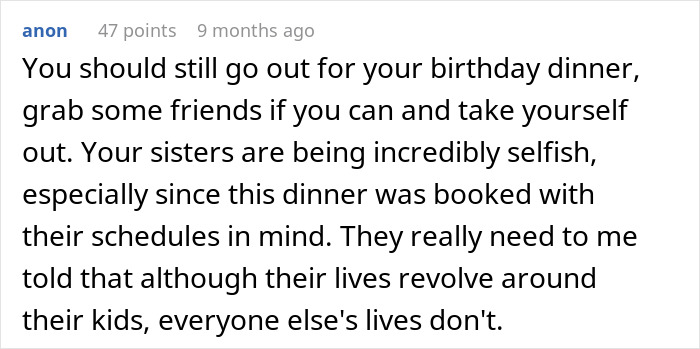

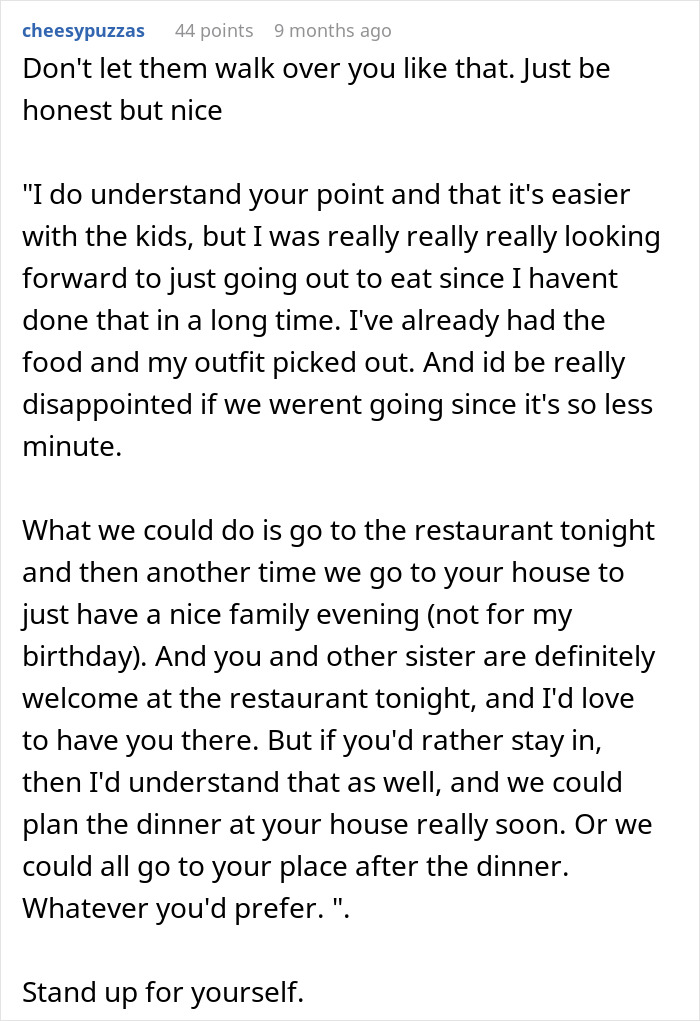
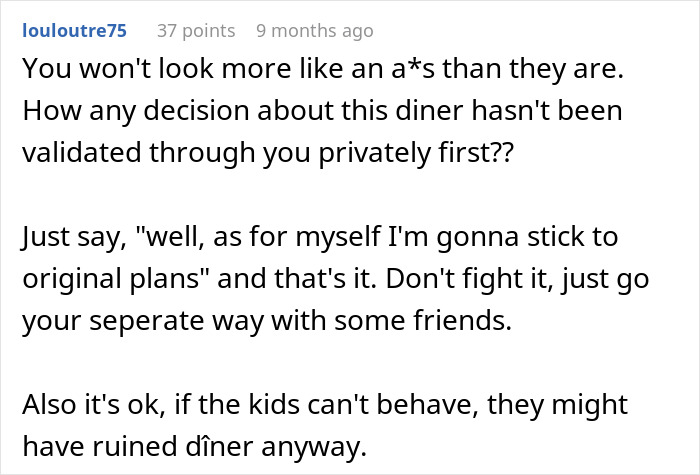
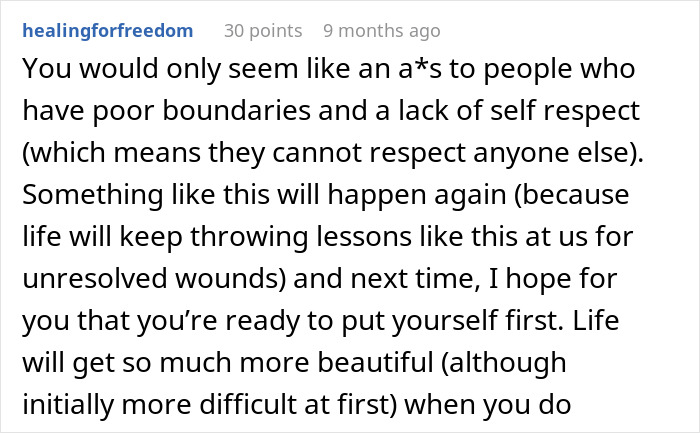



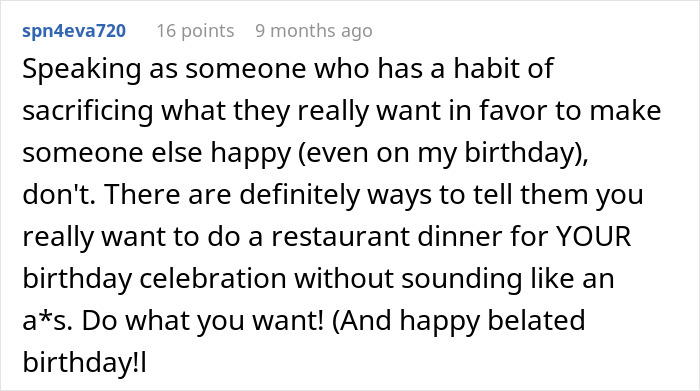
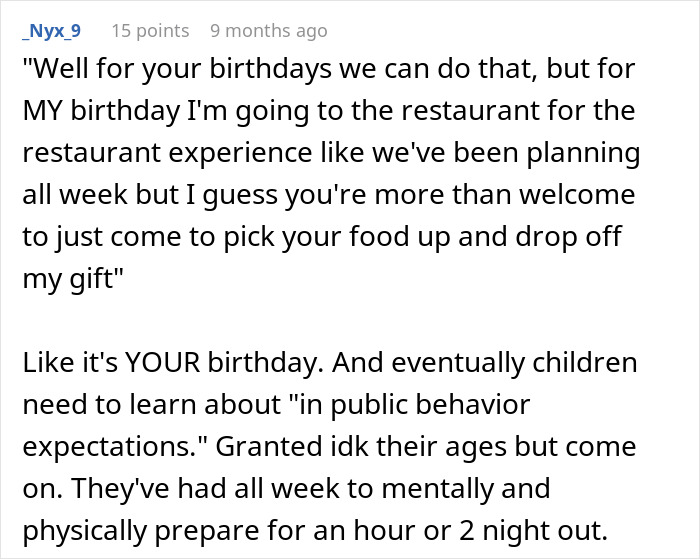

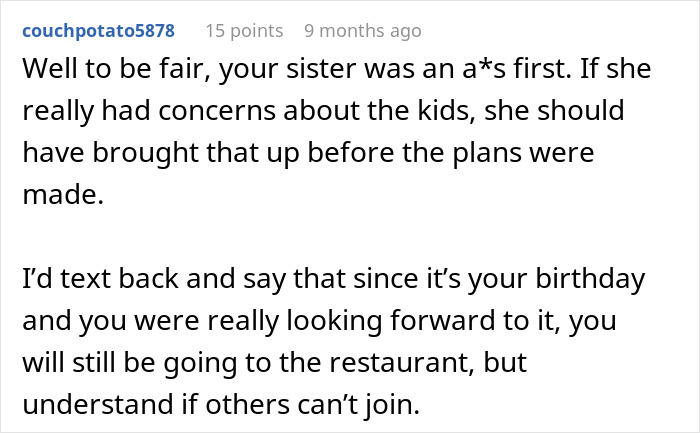



The author also provided some background details to help explain the dynamics within her family

Image credits: Gabrielle Henderson (not the actual photo)


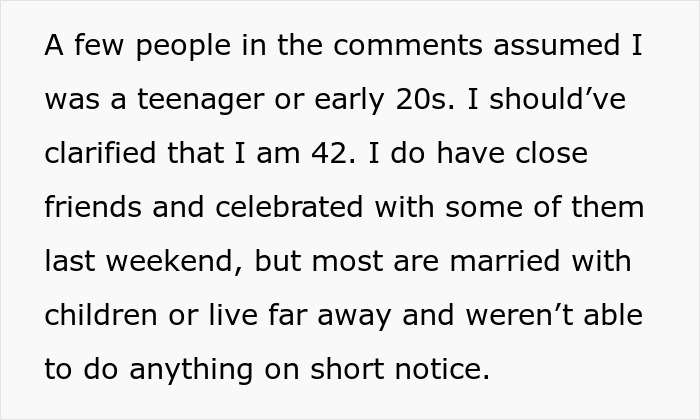
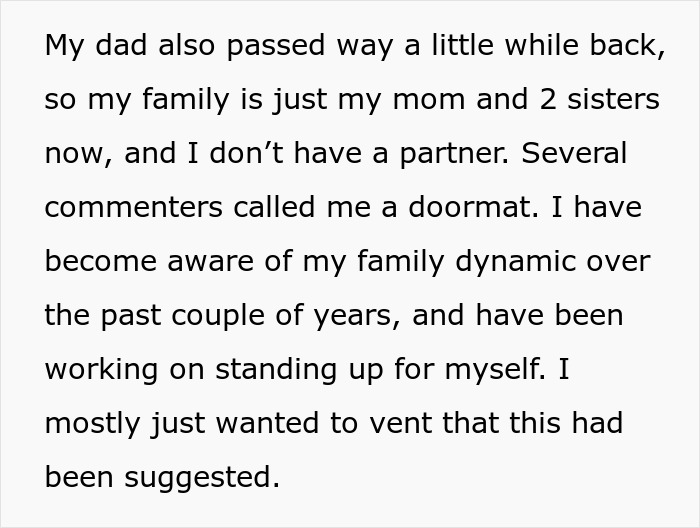
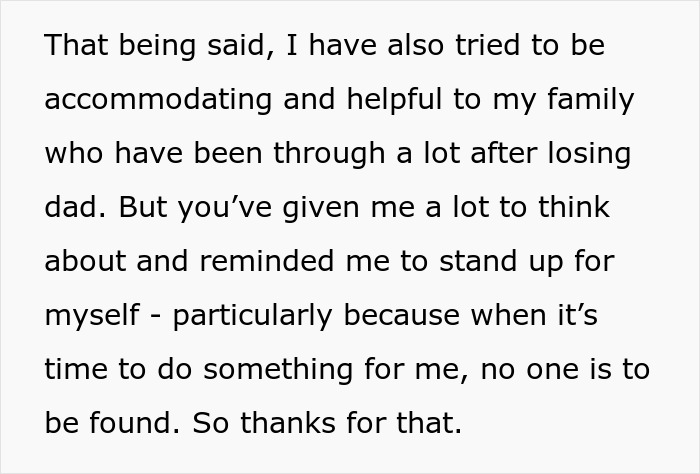
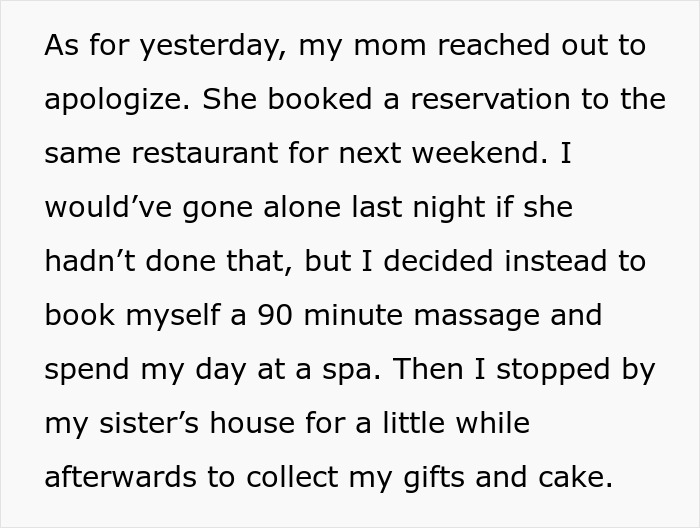

from Bored Panda https://ift.tt/6lrFH9V
via IFTTT source site : boredpanda